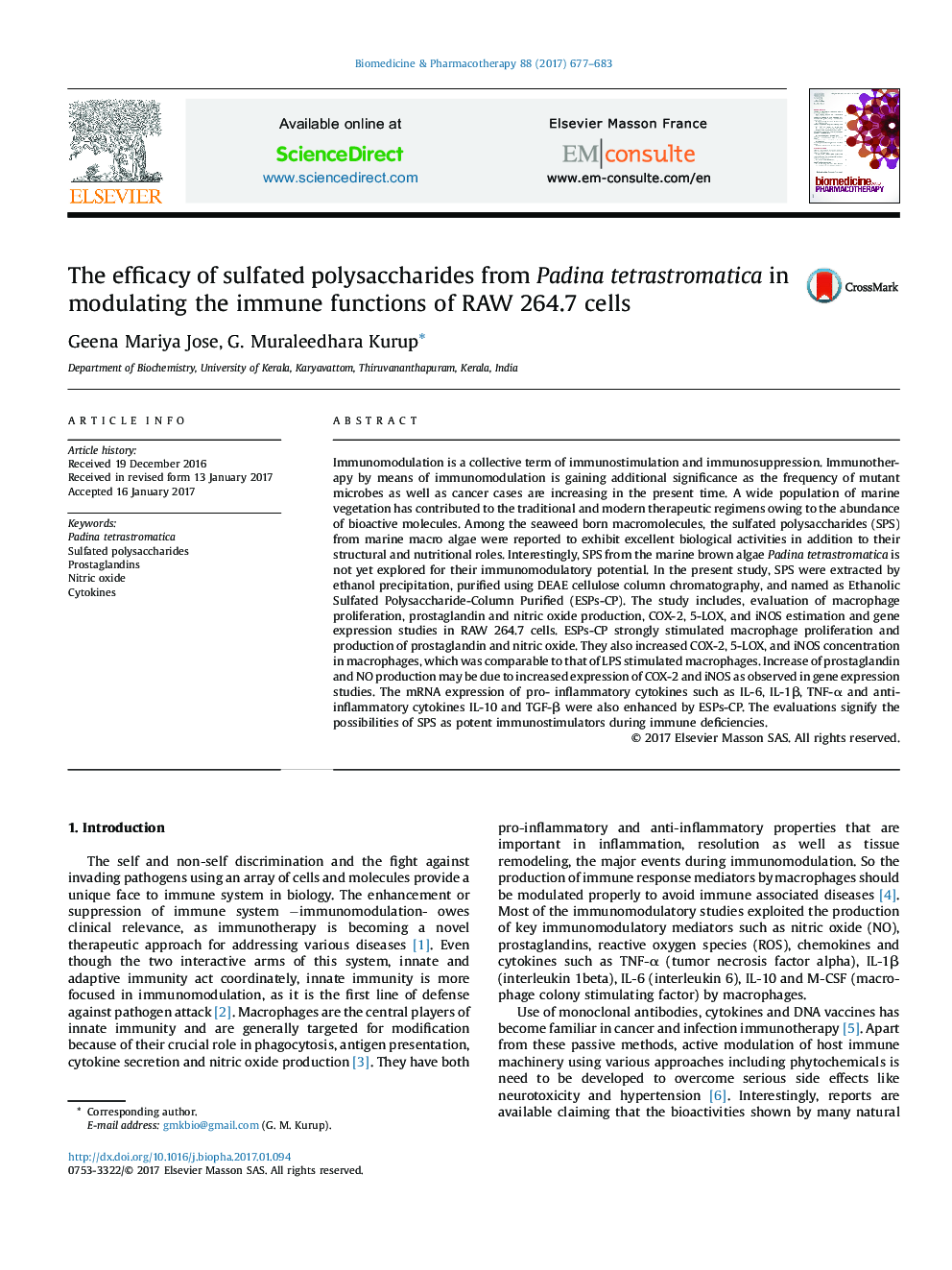| Article ID | Journal | Published Year | Pages | File Type |
|---|---|---|---|---|
| 5553189 | Biomedicine & Pharmacotherapy | 2017 | 7 Pages |
Immunomodulation is a collective term of immunostimulation and immunosuppression. Immunotherapy by means of immunomodulation is gaining additional significance as the frequency of mutant microbes as well as cancer cases are increasing in the present time. A wide population of marine vegetation has contributed to the traditional and modern therapeutic regimens owing to the abundance of bioactive molecules. Among the seaweed born macromolecules, the sulfated polysaccharides (SPS) from marine macro algae were reported to exhibit excellent biological activities in addition to their structural and nutritional roles. Interestingly, SPS from the marine brown algae Padina tetrastromatica is not yet explored for their immunomodulatory potential. In the present study, SPS were extracted by ethanol precipitation, purified using DEAE cellulose column chromatography, and named as Ethanolic Sulfated Polysaccharide-Column Purified (ESPs-CP). The study includes, evaluation of macrophage proliferation, prostaglandin and nitric oxide production, COX-2, 5-LOX, and iNOS estimation and gene expression studies in RAW 264.7 cells. ESPs-CP strongly stimulated macrophage proliferation and production of prostaglandin and nitric oxide. They also increased COX-2, 5-LOX, and iNOS concentration in macrophages, which was comparable to that of LPS stimulated macrophages. Increase of prostaglandin and NO production may be due to increased expression of COX-2 and iNOS as observed in gene expression studies. The mRNA expression of pro- inflammatory cytokines such as IL-6, IL-1β, TNF-α and anti-inflammatory cytokines IL-10 and TGF-β were also enhanced by ESPs-CP. The evaluations signify the possibilities of SPS as potent immunostimulators during immune deficiencies.
